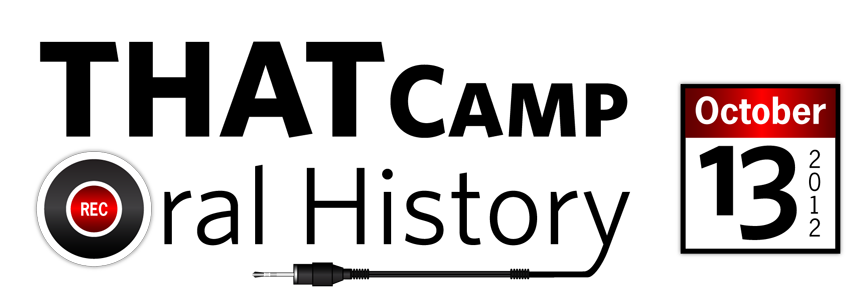As a beginning practitioner of oral history, I’d like to take advantage of THATcamp to assemble some do’s and don’ts of organizing oral history projects in support of public history pedagogy generally and the Curatescape application specifically. Many of the workshops suggested sound profitable in answering questions about collaboration, creative re-use, etc. Although we’ve only worked on a few oral history projects at Allegheny, we’re already running into problems with compatible formats, archiving and access. Rather than just jumping in on my project with some solution that will work for the moment, I’d like to come up with some ways that lay solid foundations and make it possible for the oral histories to be useful resources beyond my immediate project. I’m especially interested in setting up a system that utilizes undergraduate interns on an on-going basis in a summer program for which we’re getting funding. Perhaps a panel might consist of you experts answering such questions as: if I were starting over again I would be sure to do ____. Or, more helpfully, boy would I never again do ____. Some of my questions will be answered by my sitting in on other sessions, or we could take some time out to create a list of suggestions of best practices that consolidate what we’ve learned.
Comments are closed.
